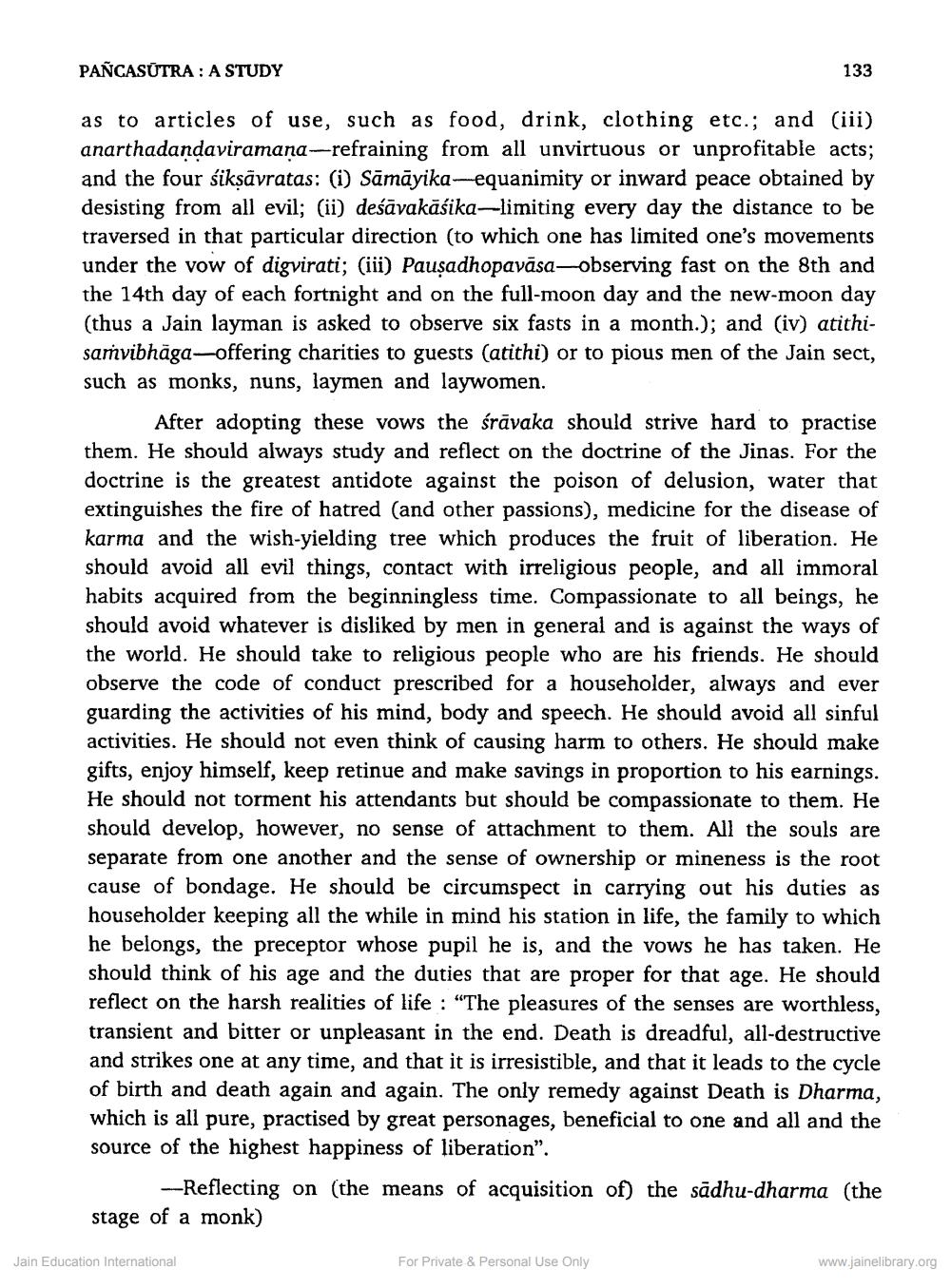________________ PANCASUTRA : A STUDY 133 as to articles of use, such as food, drink, clothing etc.; and (iii) anarthadandaviramana-refraining from all unvirtuous or unprofitable acts; and the four siksavratas: (i) Samayika-equanimity or inward peace obtained by desisting from all evil; (ii) desavakasika-limiting every day the distance to be traversed in that particular direction (to which one has limited one's movements under the vow of digvirati; (iii) Pausadhopavasa-observing fast on the 8th and the 14th day of each fortnight and on the full-moon day and the new-moon day (thus a Jain layman is asked to observe six fasts in a month.); and (iv) atithisamvibhaga-offering charities to guests (atithi) or to pious men of the Jain sect, such as monks, nuns, laymen and laywomen. After adopting these vows the sravaka should strive hard to practise them. He should always study and reflect on the doctrine of the Jinas. For the doctrine is the greatest antidote against the poison of delusion, water that extinguishes the fire of hatred (and other passions), medicine for the disease of karma and the wish-yielding tree which produces the fruit of liberation. He should avoid all evil things, contact with irreligious people, and all immoral habits acquired from the beginningless time. Compassionate to all beings, he should avoid whatever is disliked by men in general and is against the ways of the world. He should take to religious people who are his friends. He should observe the code of conduct prescribed for a householder, always and ever guarding the activities of his mind, body and speech. He should avoid all sinful activities. He should not even think of causing harm to others. He should make gifts, enjoy himself, keep retinue and make savings in proportion to his earnings. He should not torment his attendants but should be compassionate to them. He should develop, however, no sense of attachment to them. All the souls are separate from one another and the sense of ownership or mineness is the root cause of bondage. He should be circumspect in carrying out his duties as householder keeping all the while in mind his station in life, the family to which he belongs, the preceptor whose pupil he is, and the vows he has taken. He should think of his age and the duties that are proper for that age. He should reflect on the harsh realities of life : "The pleasures of the senses are worthless, transient and bitter or unpleasant in the end. Death is dreadful, all-destructive and strikes one at any time, and that it is irresistible, and that it leads to the cycle of birth and death again and again. The only remedy against Death is Dharma, which is all pure, practised by great personages, beneficial to one and all and the source of the highest happiness of liberation". --Reflecting on (the means of acquisition of) the sadhu-dharma (the stage of a monk) Jain Education International For Private & Personal Use Only www.jainelibrary.org




